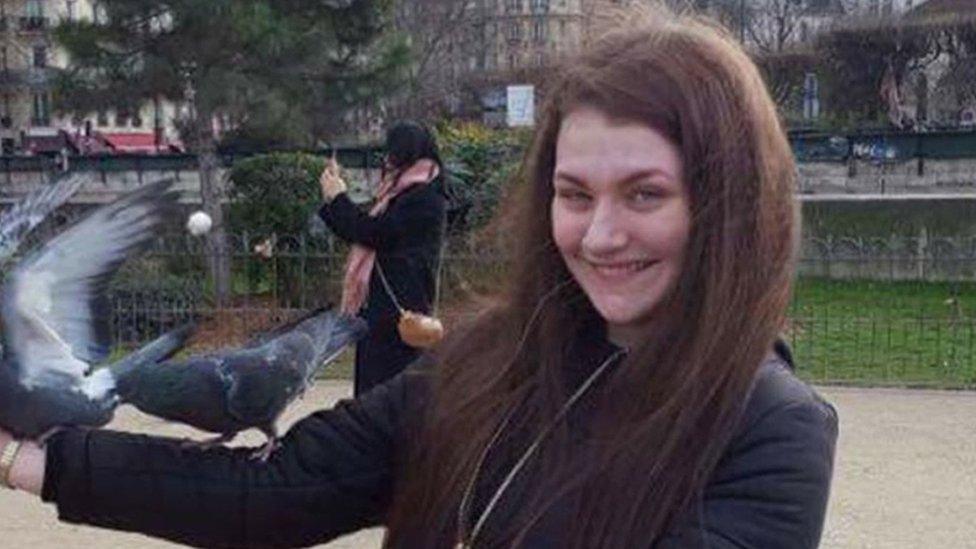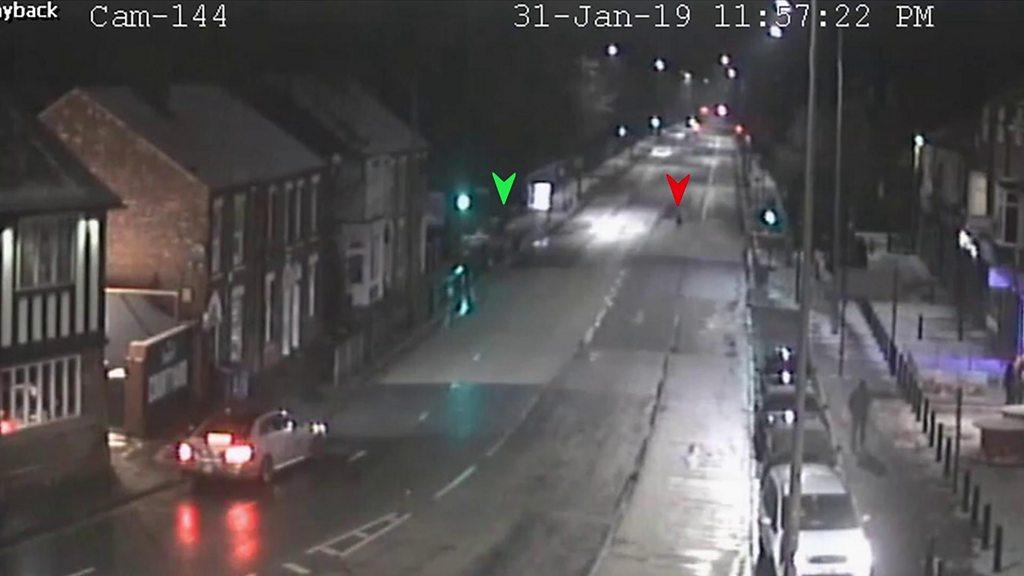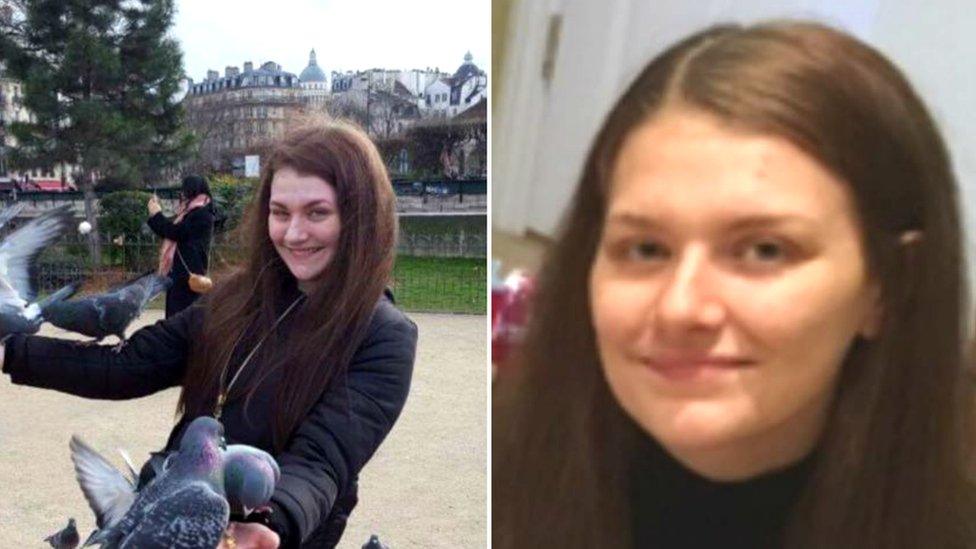Libby Squire murder trial: Student 'vulnerable and unable to defend herself'
- Published

Philosophy student Libby Squire was last seen in the early hours of 1 February 2019
A student found dead after she went missing on a night out would have had a "very limited ability to defend herself" when she disappeared, a court heard.
Libby Squire, 21, vanished after she was refused entry to a Hull nightclub on 31 January 2019.
Sheffield Crown Court was told her judgement may have been impaired by alcohol and hypothermia symptoms.
Pawel Relowicz, 26, denies rape and murder and dumping her body in a river.
Prof Charles Deakin told jurors he believed the University of Hull student would have been "suffering from numb hands and fingers, her co-ordination would have been impaired, she is likely to have been unsteady on her feet, and likely to have felt tired".
Her judgement and balance would probably have also been "significantly impaired" due to alcohol, he said.
The professor concluded Ms Squire would have been "vulnerable to a number of threats", including cold weather, impaired decision-making and a lowered ability to assess threats from others "in terms of assessing their intent and interactions".
He told the court Ms Squire's ability to defend herself and "to run away and escape from danger" would have been limited.

CCTV of final movements
Footage of Libby Squire and Pawel Relowicz's movements was shown to jurors
Jurors were shown CCTV of Mr Relowicz and Ms Squire's movements from when she was last seen on Beverley Road on 31 January 2019.
The pair came across each other after the student was refused entry to a nightclub because she appeared drunk, the court was told.

The jury also heard the defendant had "laughed and smirked" when he was interviewed by detectives in August 2019, five months after Ms Squire's body was recovered from the Humber Estuary.
When an officer put to him: "The only reason she is dead is because you killed her, why are you laughing?", he replied with "no comment".
The court was told Mr Relowicz's semen and saliva were found on a number of items he had stolen during burglaries in the weeks before the philosophy student's disappearance.
Jurors heard he had taken a pink holdall containing sex toys, women's underwear and photographs from a student house and had performed sex acts on some items.
The Polish butcher, who is married with two young children, had committed a string of sexual offences including voyeurism and outraging public decency, the court was told.

Richard Wright QC led the prosecution case against Pawel Relowicz since the trial started on 12 January
In one victim's statement, read by the prosecution, a female student living in a shared house said she saw a man's face "just inches from my window" as she was getting dressed.
She said she "got scared" and later recognised him to be Mr Relowicz, having seen his photo posted on Facebook following Ms Squire's disappearance.
Another victim said she saw the defendant's "hands and face" coming through a window when she was having sex with her boyfriend.
Her housemate returned later and found a used condom hanging on the front door and a pair of knickers on the letterbox, the jury heard.
Another victim said an unwrapped condom and a pair of knickers was left beside her child's toy, the court was told.
Forensic scientist Nicola Taylor told the jury Mr Relowicz's DNA and bodily fluid were found on women's underwear suggesting he had "intimate contact with the knickers" and may have possibly worn them.
The trial continues.

Follow BBC East Yorkshire and Lincolnshire on Facebook, external, Twitter, external, and Instagram, external. Send your story ideas to yorkslincs.news@bbc.co.uk, external.
Related topics
- Published21 January 2021

- Published20 January 2021

- Published20 January 2021

- Published19 January 2021

- Published18 January 2021

- Published14 January 2021

- Published13 January 2021

- Published12 January 2021
